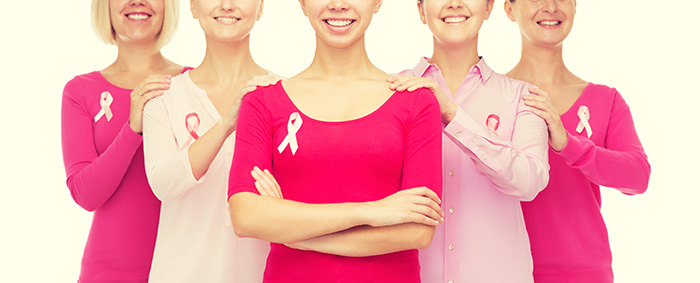The Adelphi NY Statewide Breast Cancer Hotline & Support Program continues to fulfill its mission while updating services.
by Lyn Dobrin
Adelphi’s breast cancer hotline continues to fulfill its mission while updating services.The origin of the Adelphi NY Statewide Breast Cancer Hotline & Support Program is one that reflects how the social work values of enhancing human well-being and helping to meet the basic human needs of all people influenced the founding and progress of this unique program. The program is emblematic of the School’s commitment to serving our communities and looking critically at policy, programs and services to address emerging social needs.
Thirty-five years ago, professors at the Adelphi University School of Social Work recognized the need in the community for women to come together to talk about a disease that society kept hidden away—breast cancer. Several women who had had breast cancer were brought together for a support group. When the group ended, they knew that what they had experienced needed to be made available to other women. They also understood that there were many women who would be unable to come to the school for the support group and so they established the Woman-to-Woman Hotline, a confidential phone line where women with breast cancer could speak with survivors who “had been there” and receive emotional support and information. That grew into a statewide breast cancer hotline and today there are almost 100 volunteers serving on the hotline and providing education in the community. Volunteers have been specially training for the speaker’s bureau, ready to educate women and men about breast cancer at community events.
The social action piece of the program emerged with a recognition that the causes of breast cancer were unknown and that treatment hadn’t changed from generation to generation. The program began an action component and vociferously and successfully advocated in Albany and Washington for more money for research into causes and cures. Along with other organizations across the country,
the program also helped fund the National Breast Cancer Coalition to address breast cancer issues through research, legislation and advocacy.
The breast cancer hotline’s history is of commitment to serve our community. To that end numerous programs and services that address emerging social needs were created:
- Despite advances in cancer prevention and treatment, it was clear that breast cancer mortality continued to be disproportionately higher among African American and Latino women, so the program established Sisters United in Health/Hermanas Unidas en la Salud (SUIH), a collaboration of organizations in the Long Island region, with the goal of providing breast health education, conducting outreach initiatives and offering screening and support resources to African American and Latino women in under-served communities. An outpost at the hospital that treats most of the poor, uninsured, underserved people in the county was established to provide on-site services in English and Spanish for women coping with breast cancer and their families.
- Although breast cancer is predominantly a woman’s disease, men get breast cancer too, and so the hotline and support program established the nation’s first breast cancer support group for men. Ultimately the men in the group, with the guidance of staff, developed a brochure to inform other men. Other support groups, such as those for women with metastatic breast cancer or for husbands of women with breast cancer, were established as a response to needs in the community.
- Forums provide the latest information on breast cancer and related concerns such as the physical and emotional effects of chemotherapy, genetic counseling, nutrition and stress reduction. The program is ever responsive to our community and ready to provide needed services.
